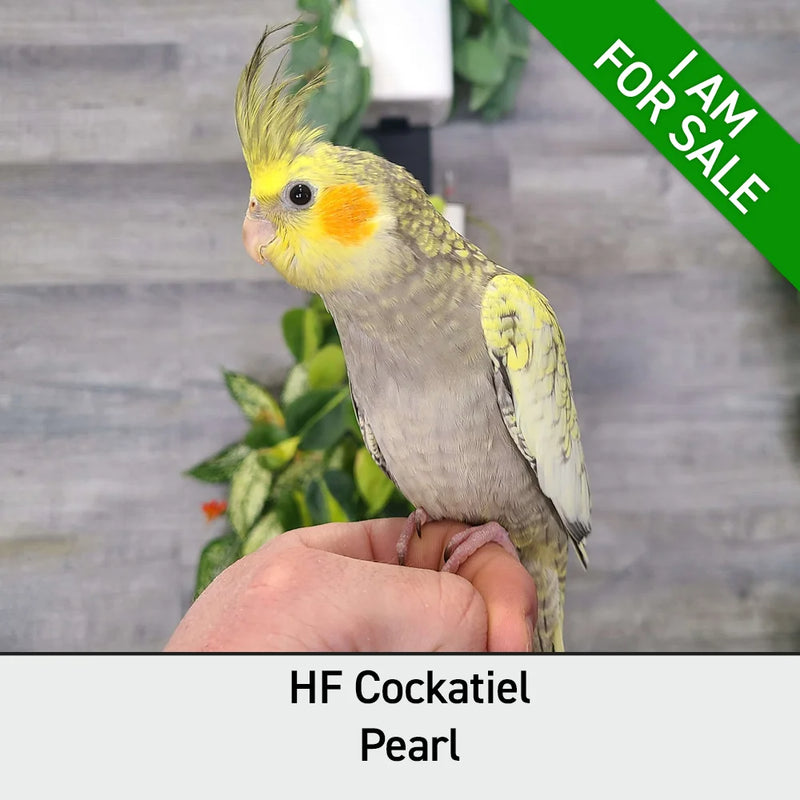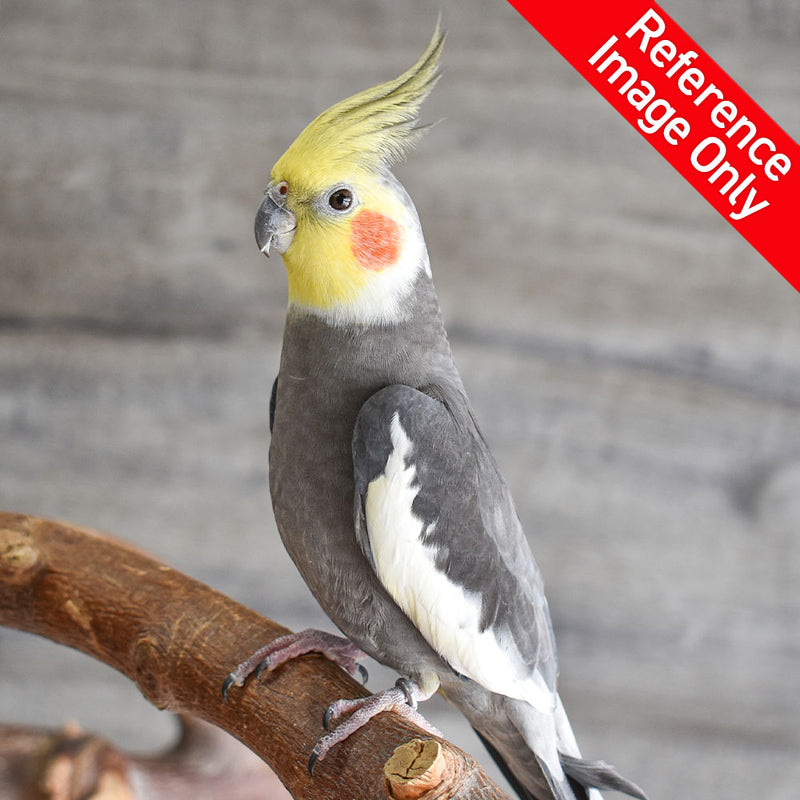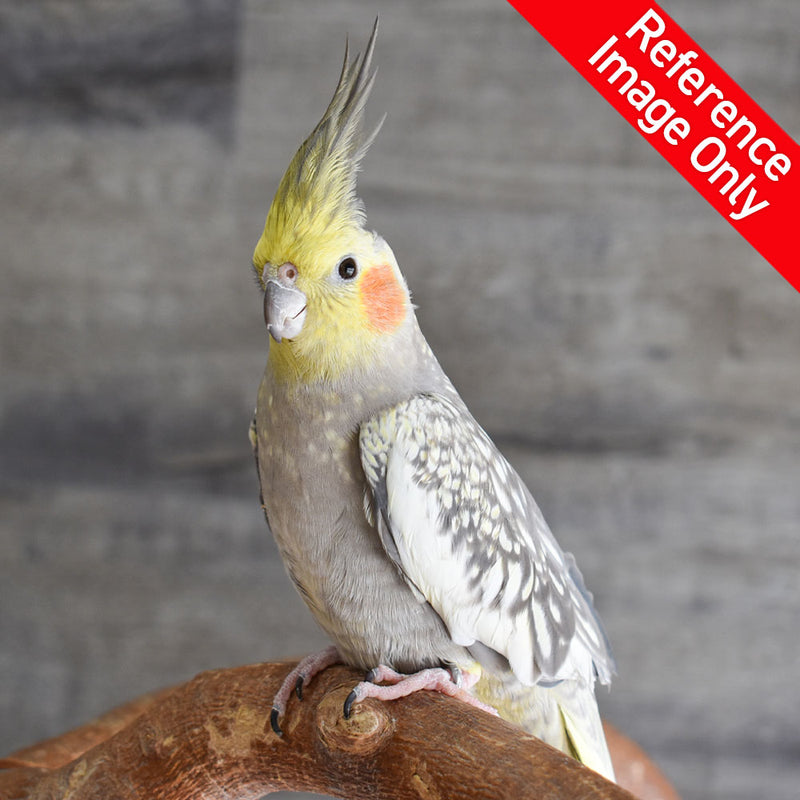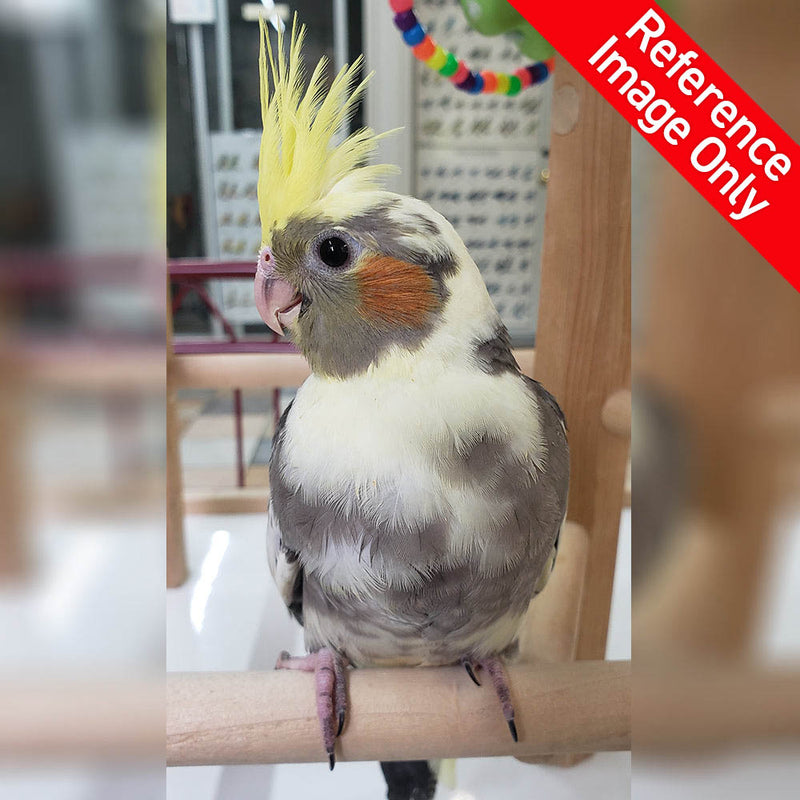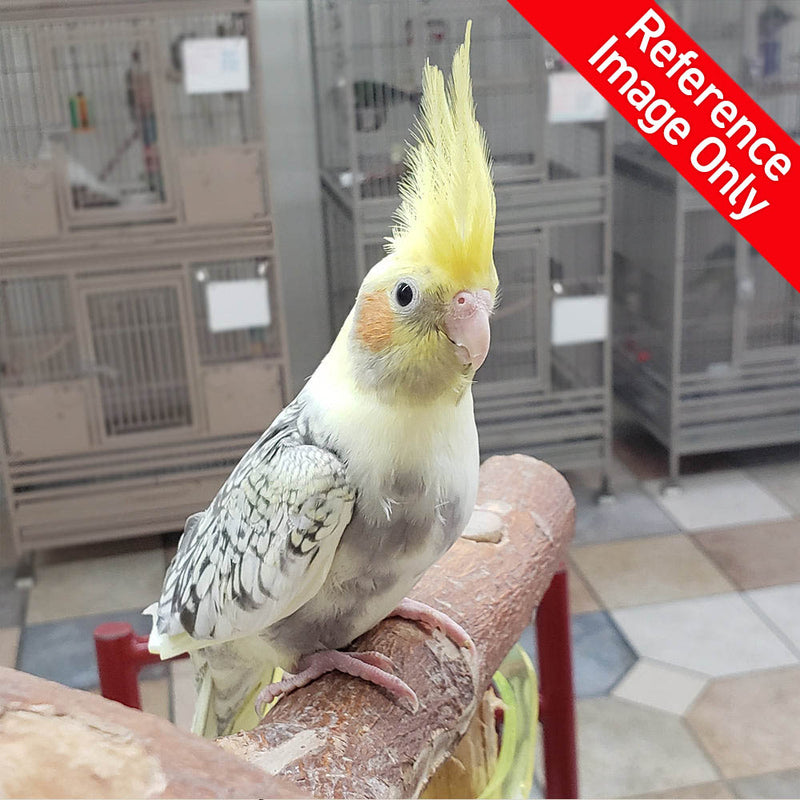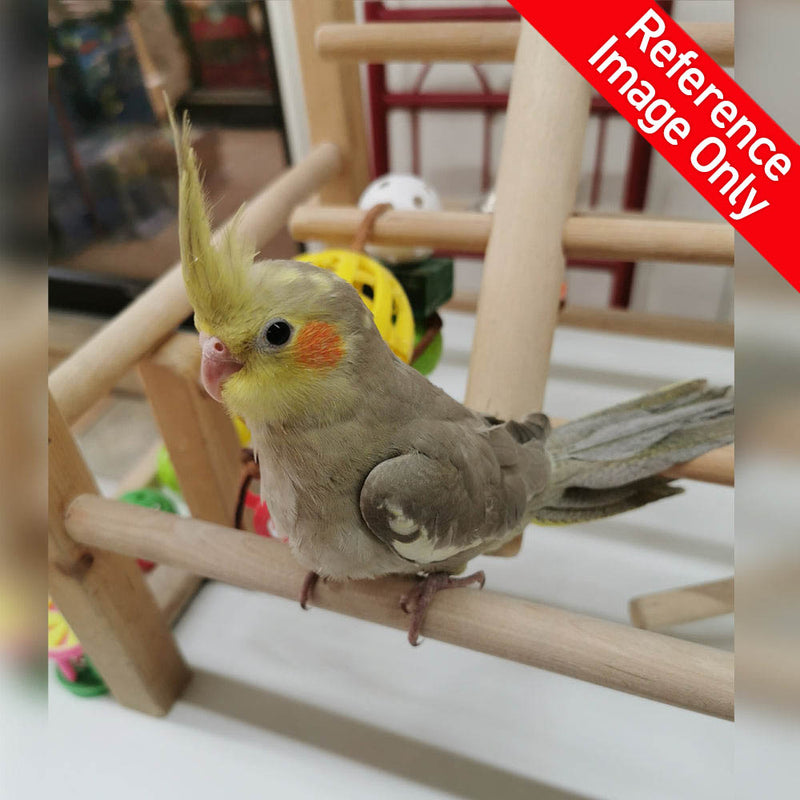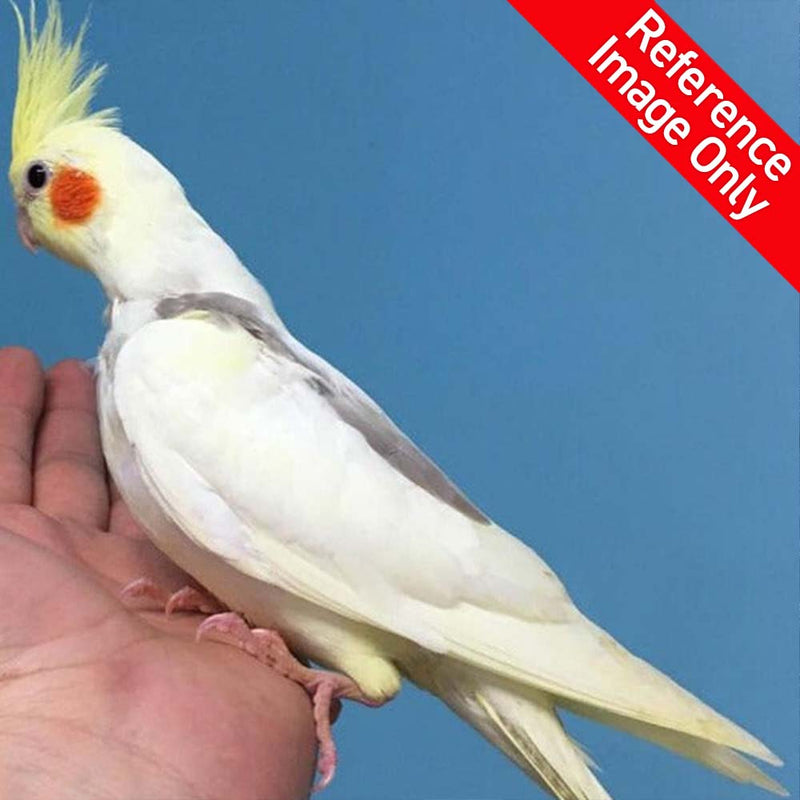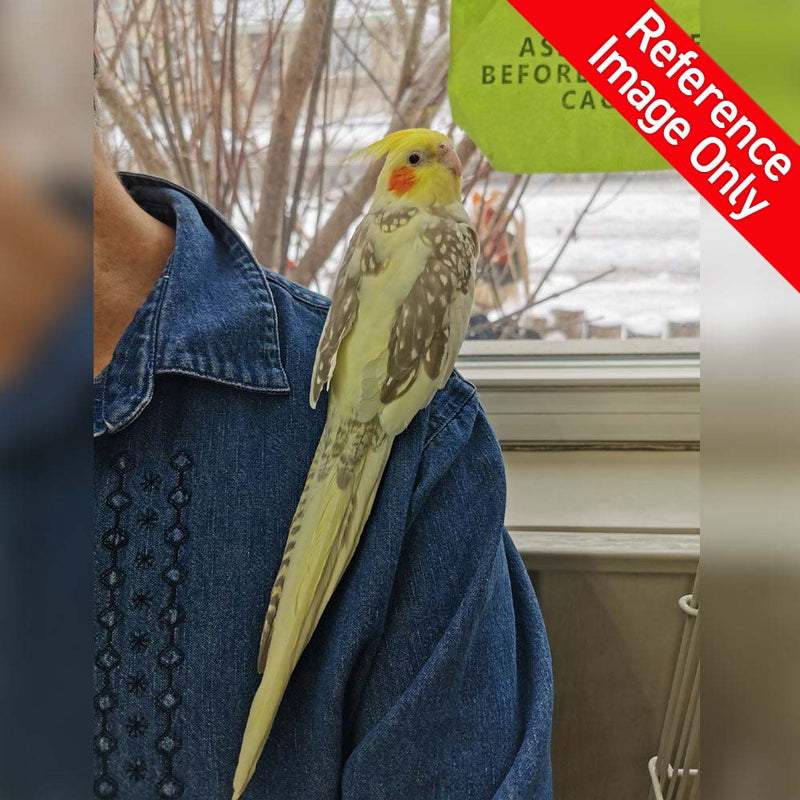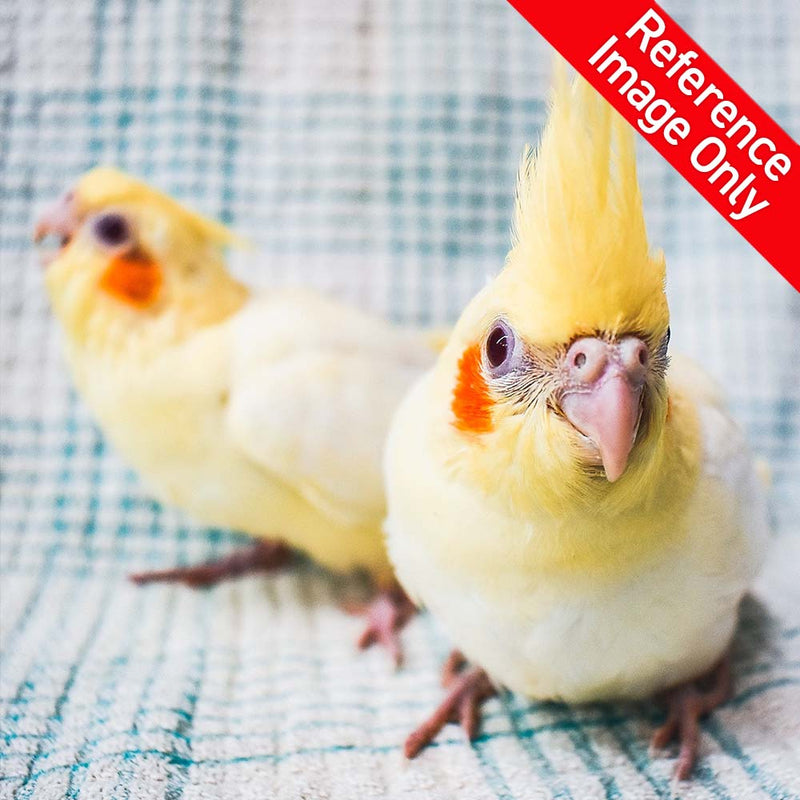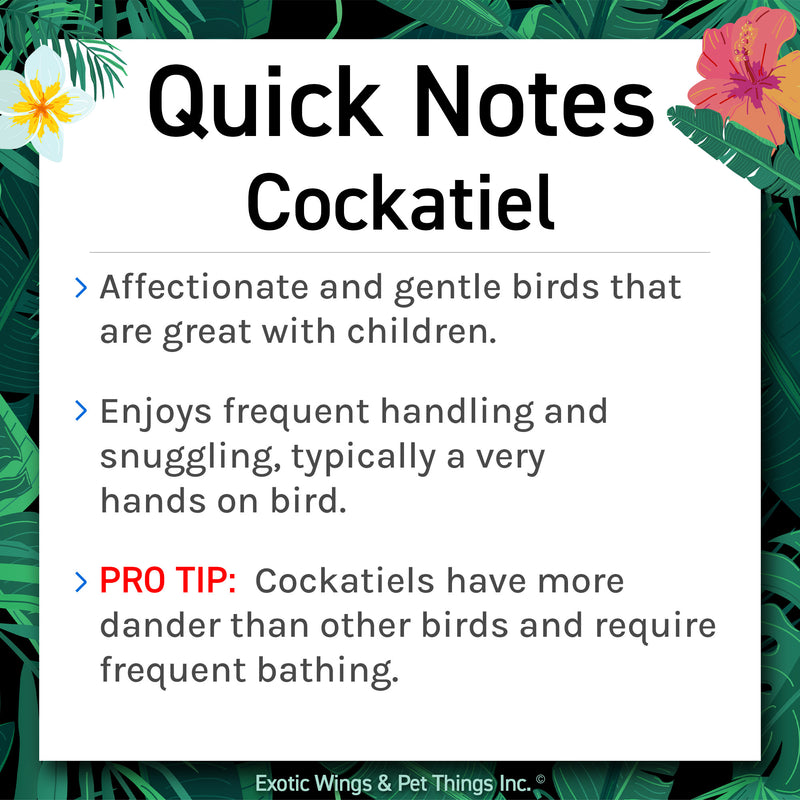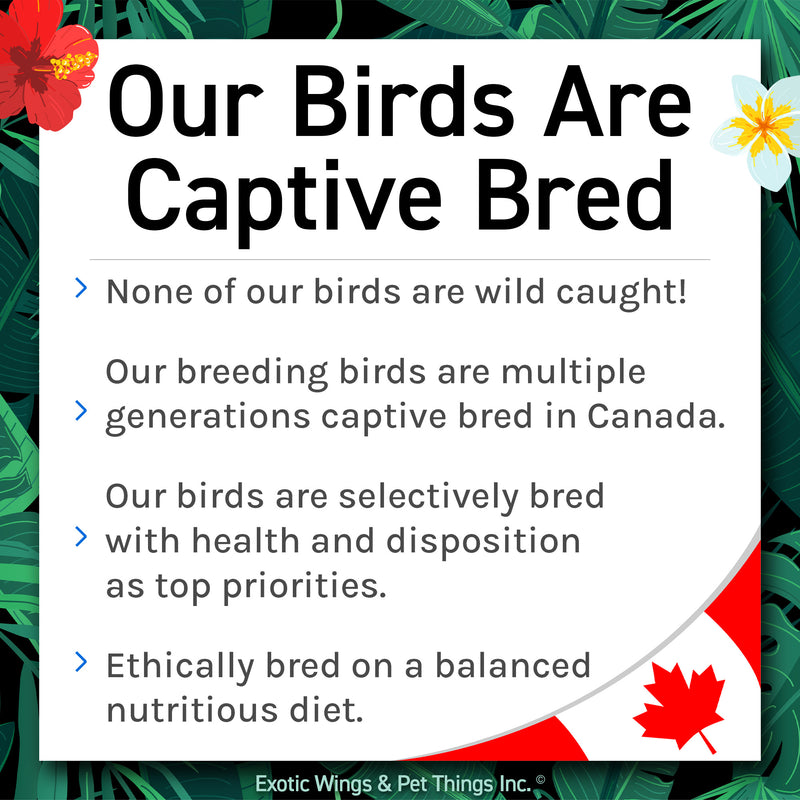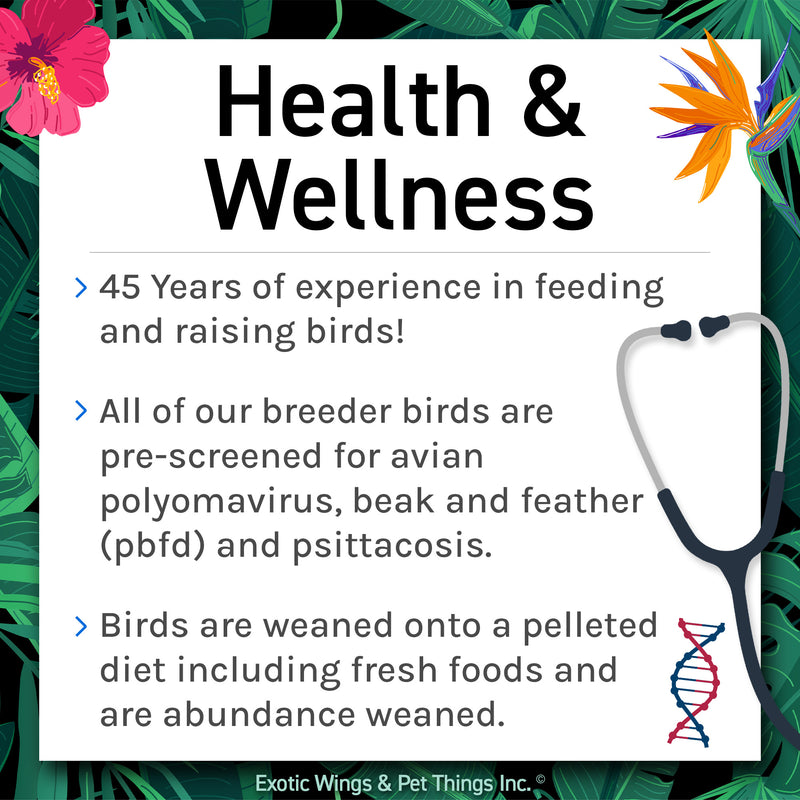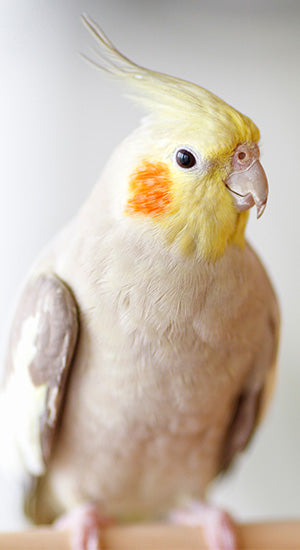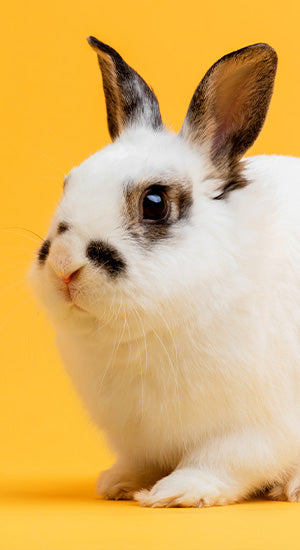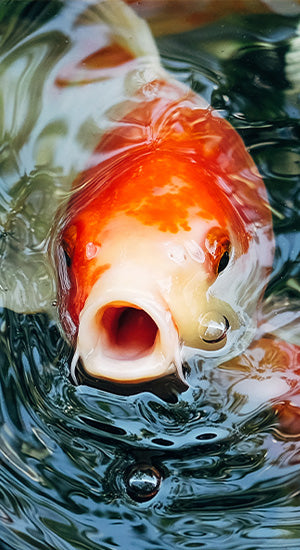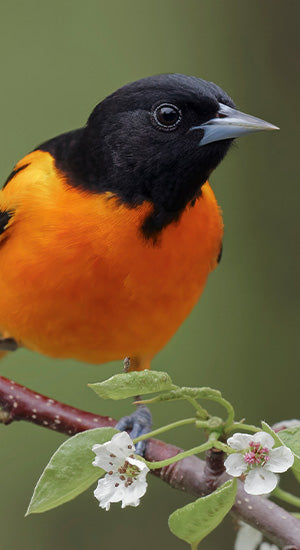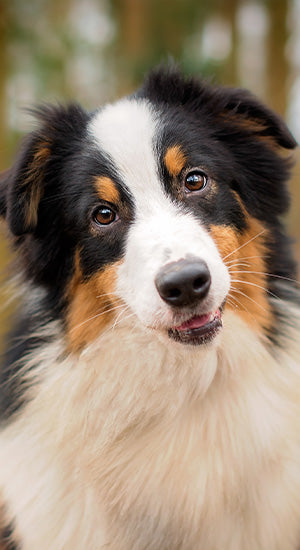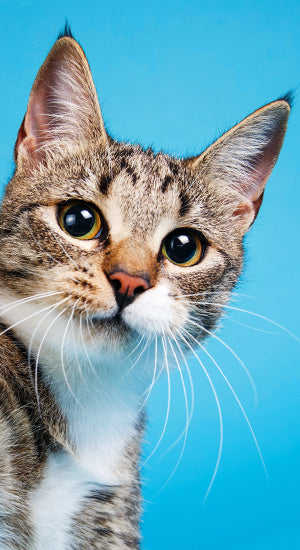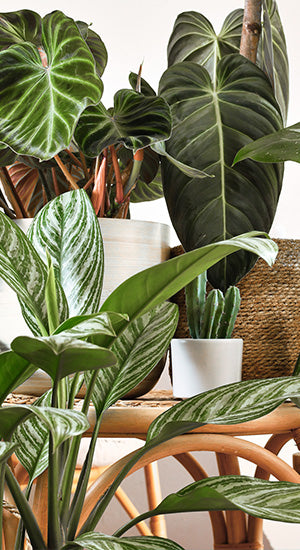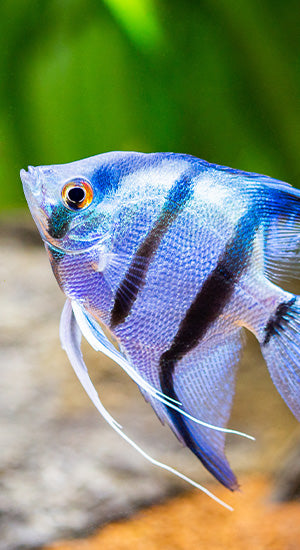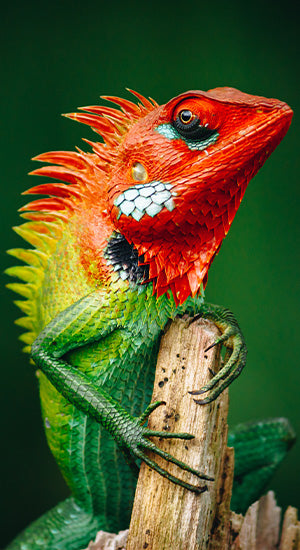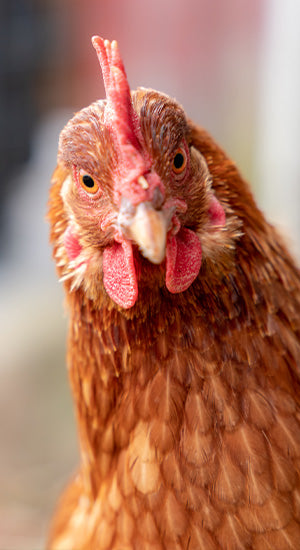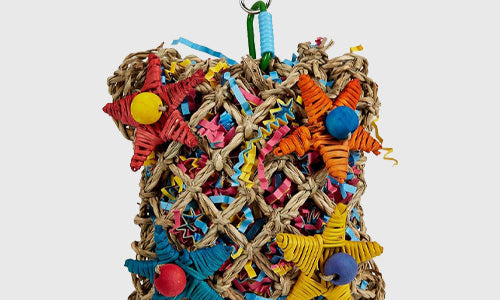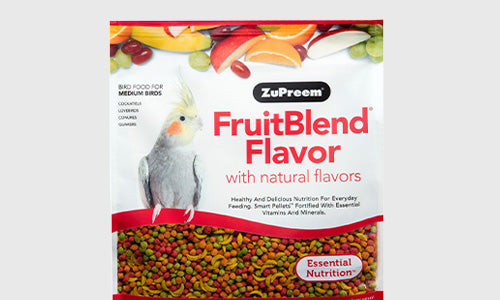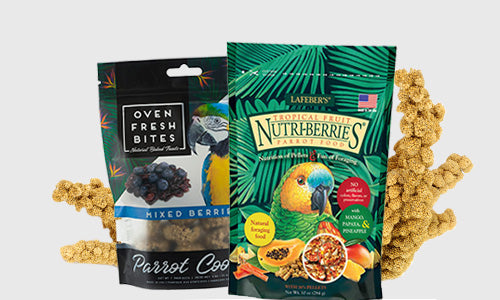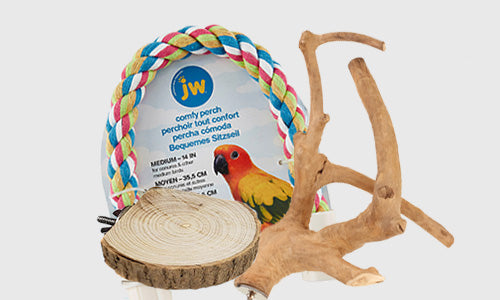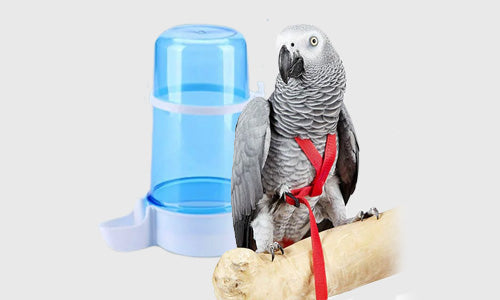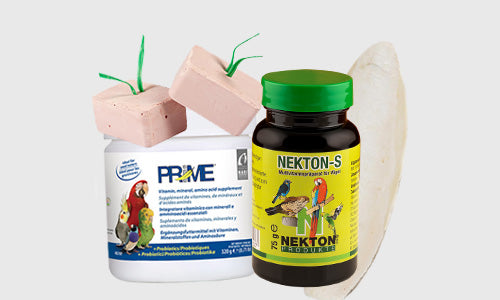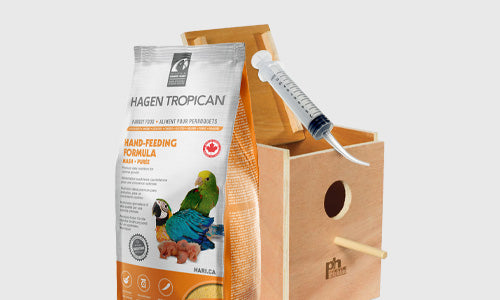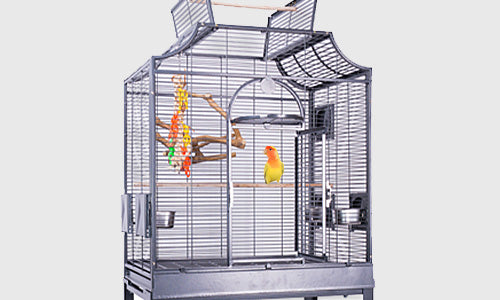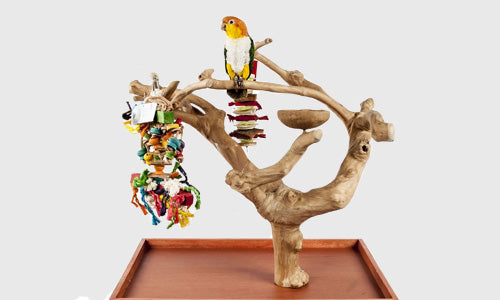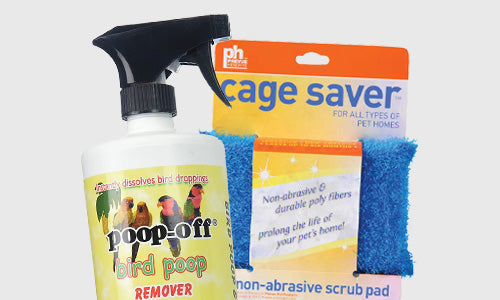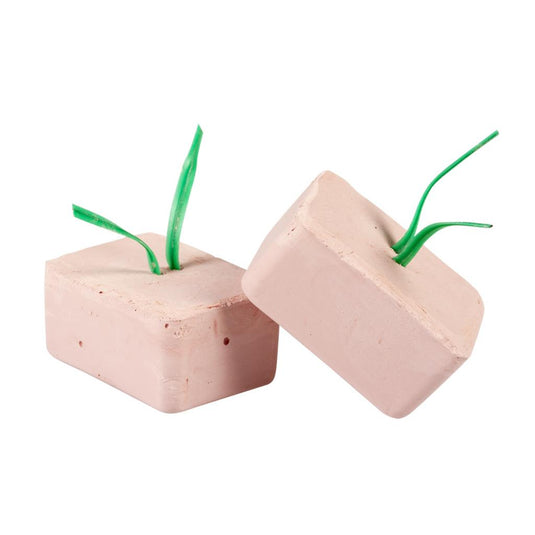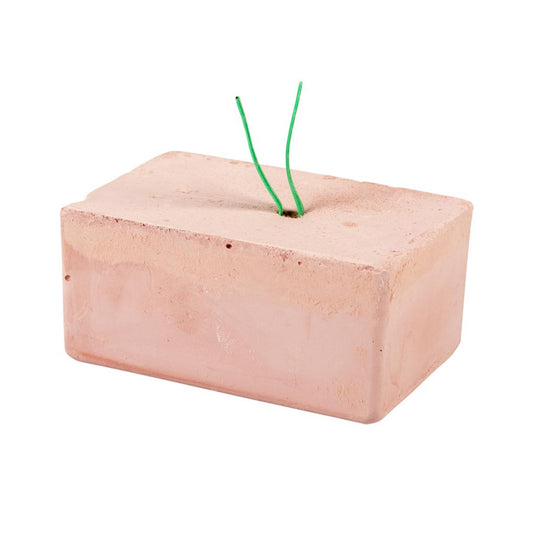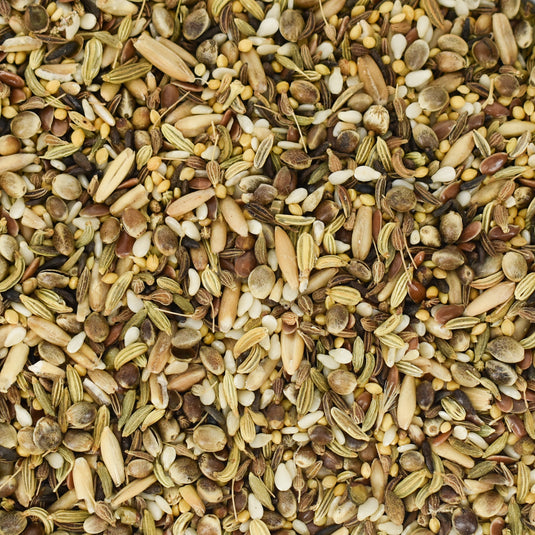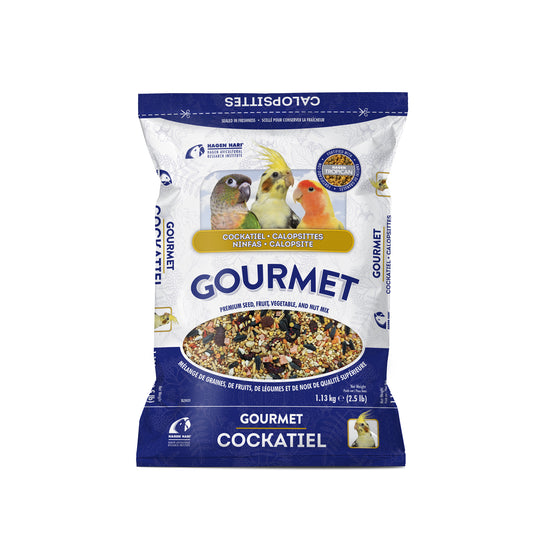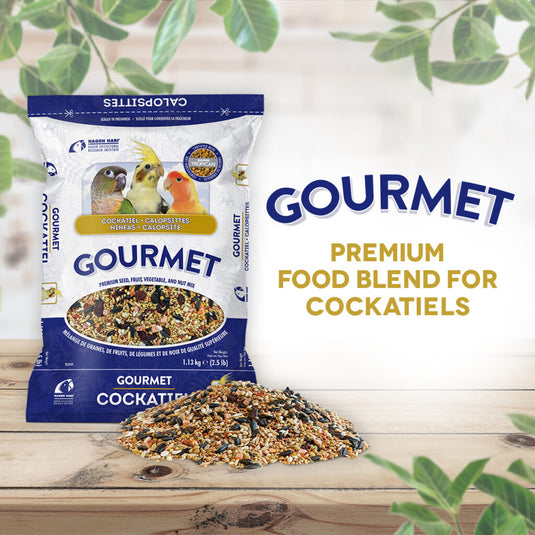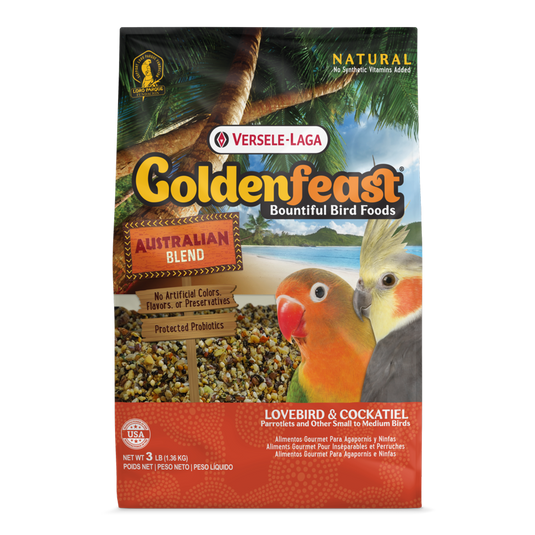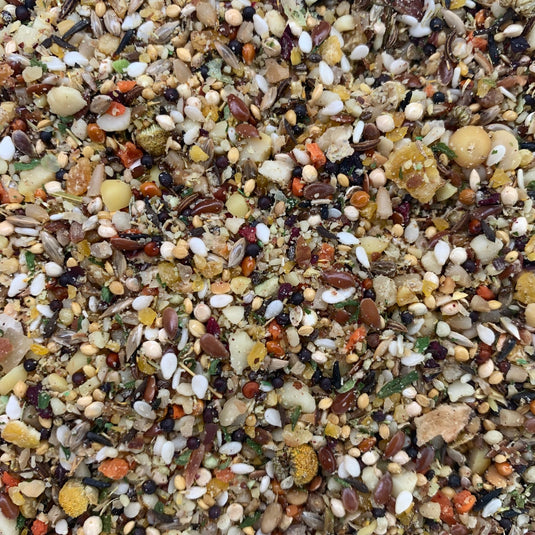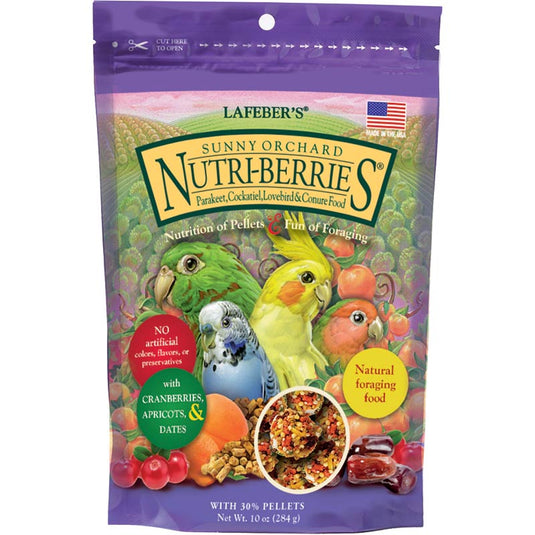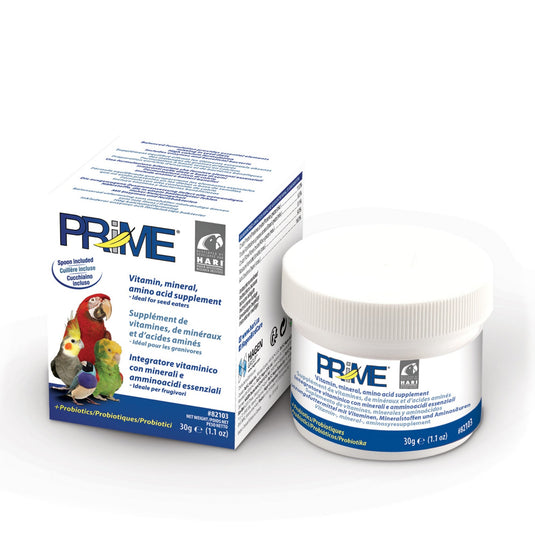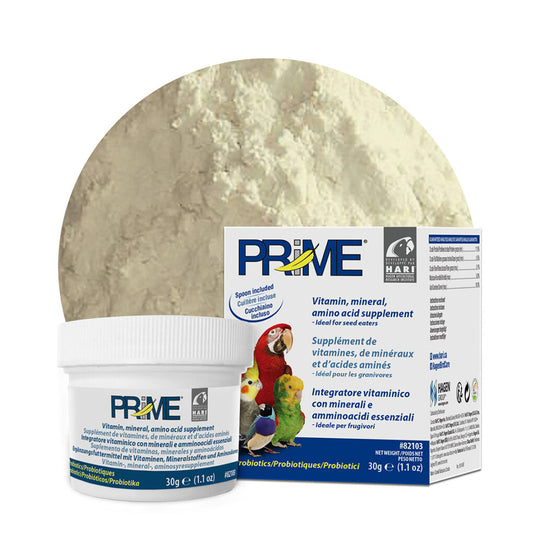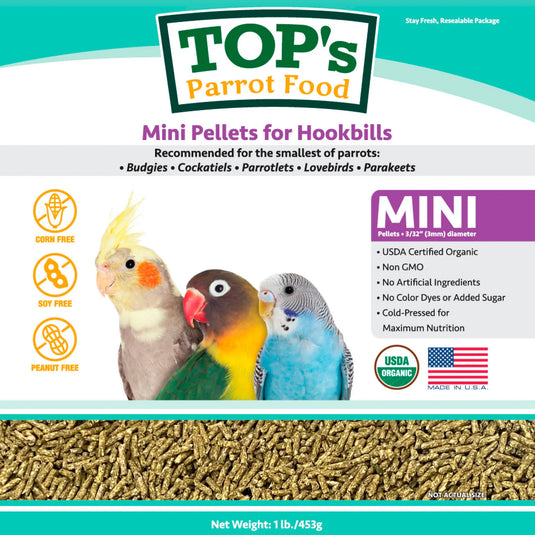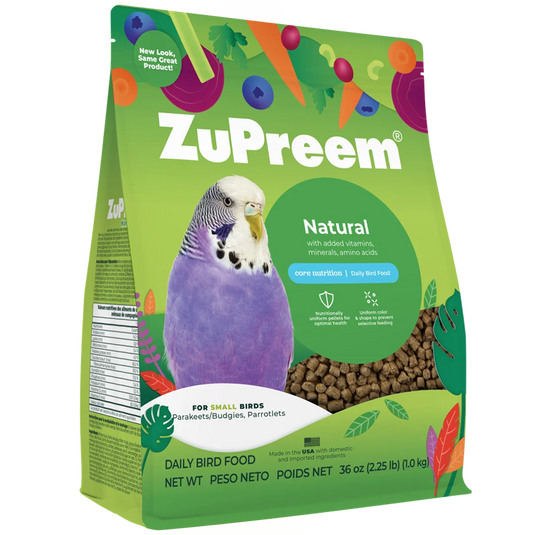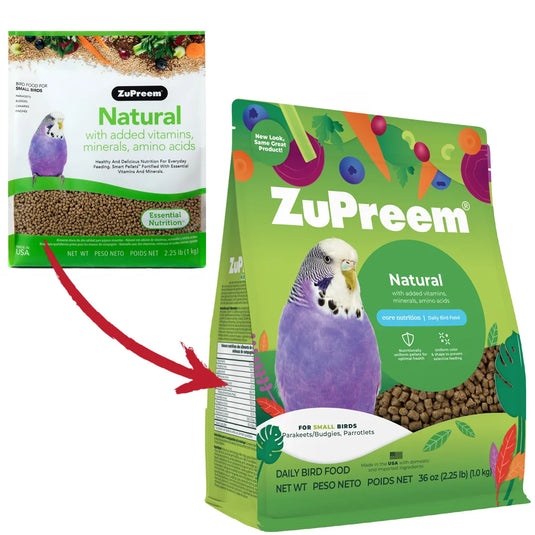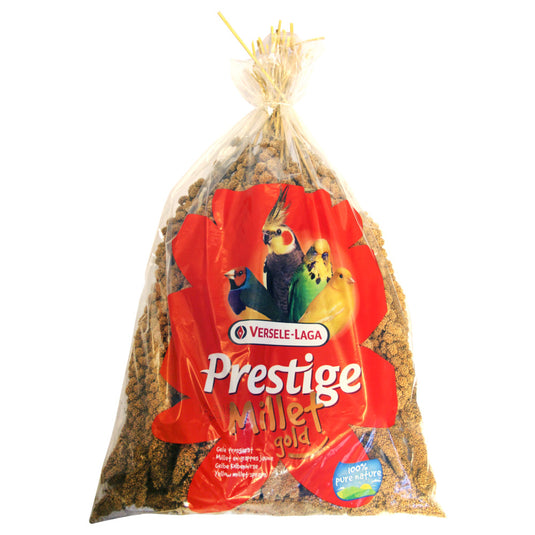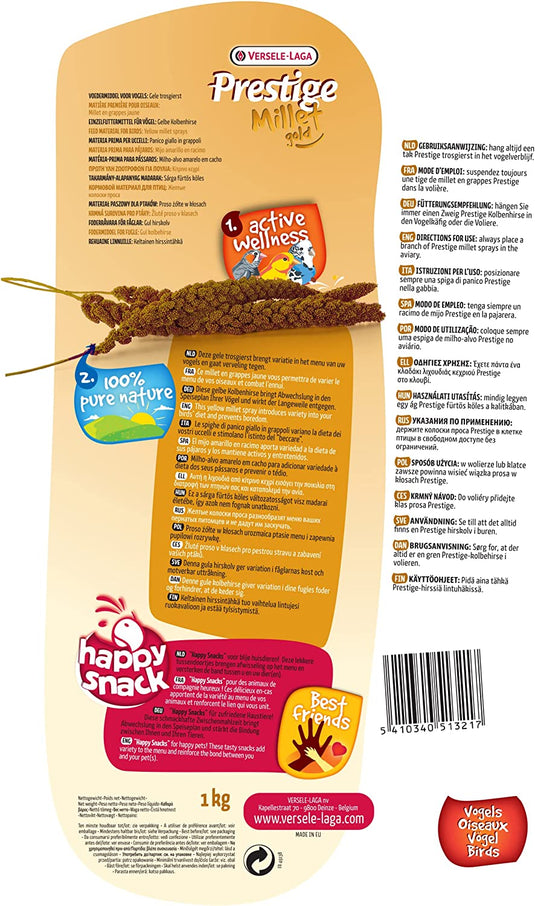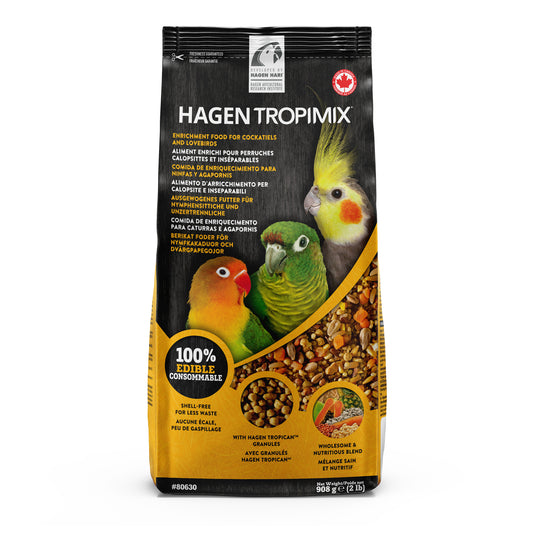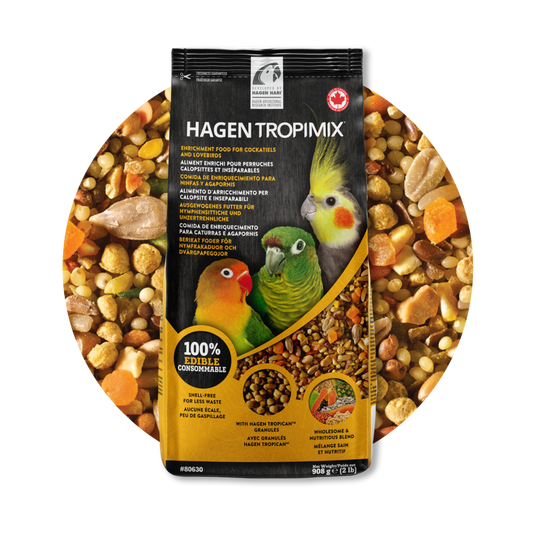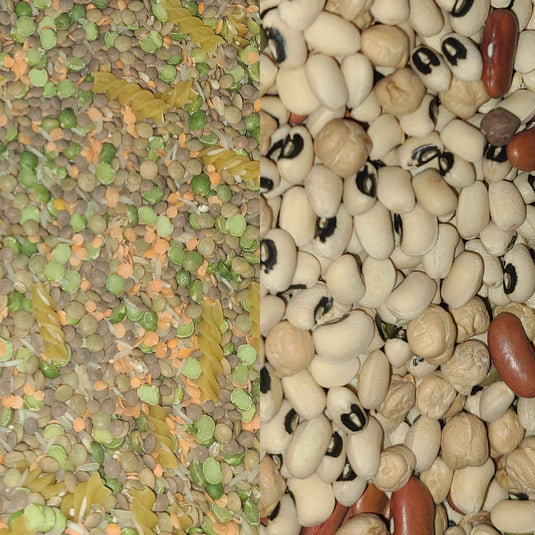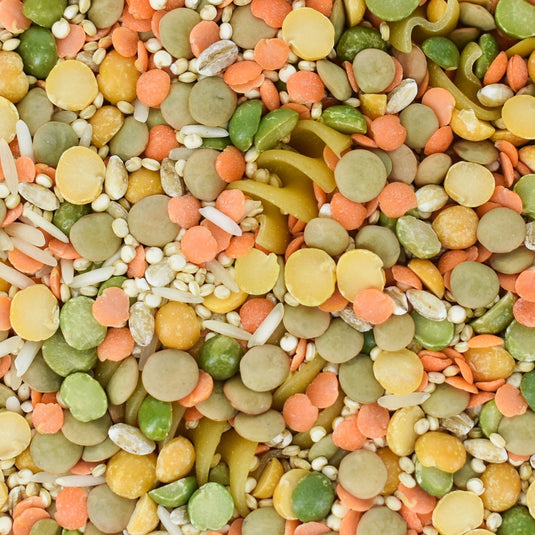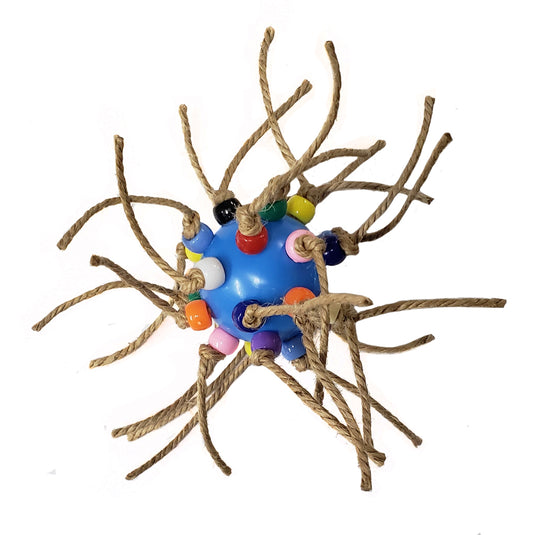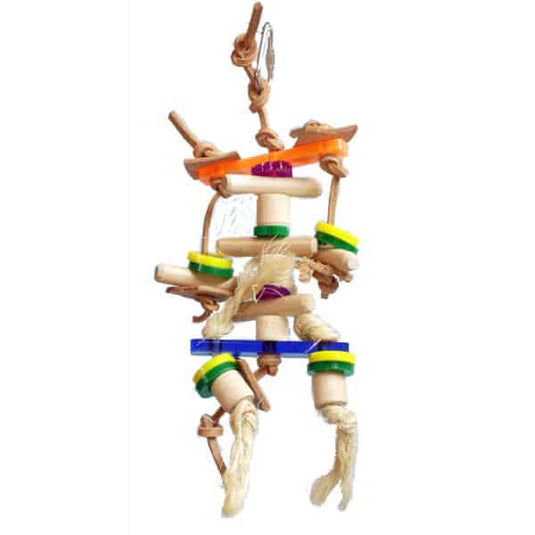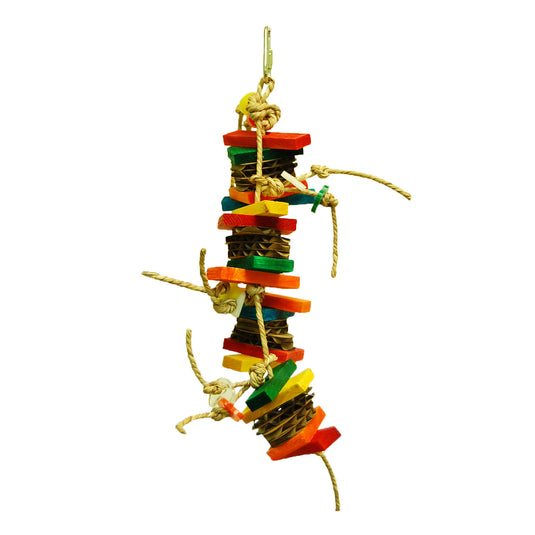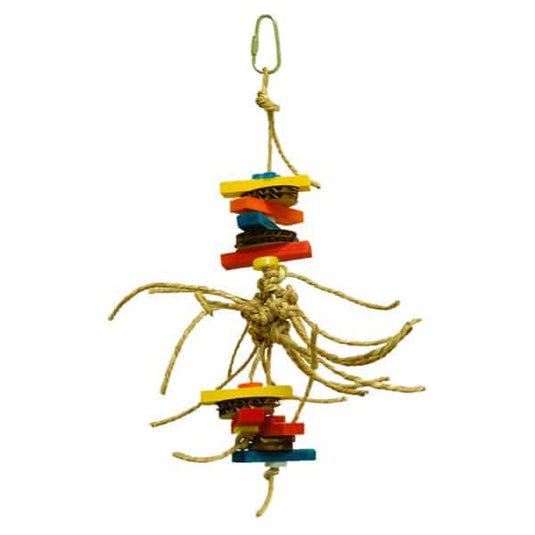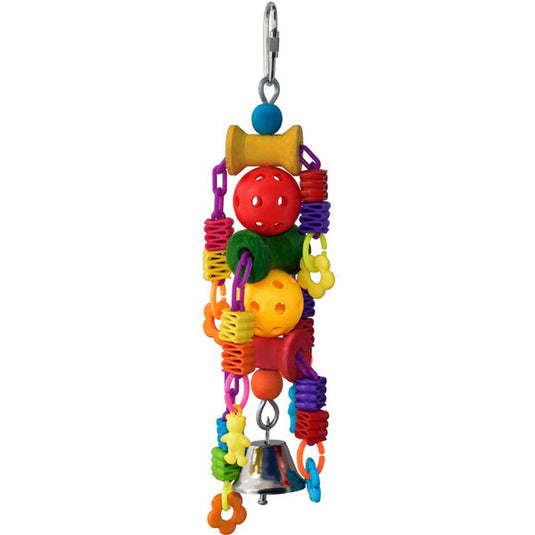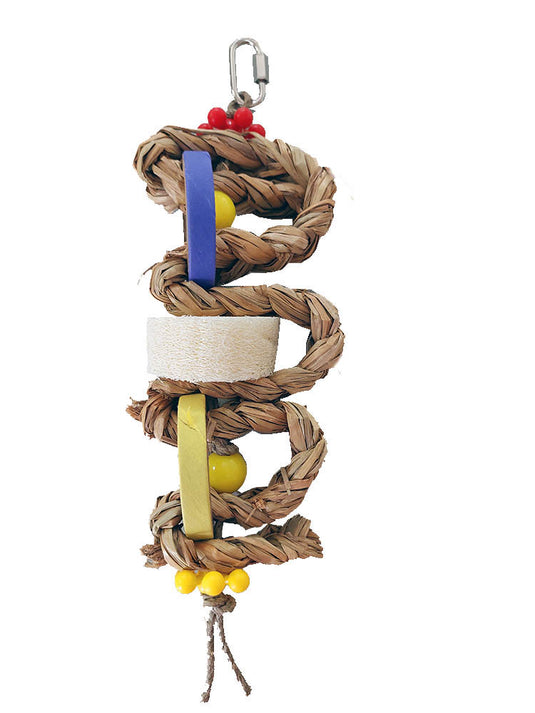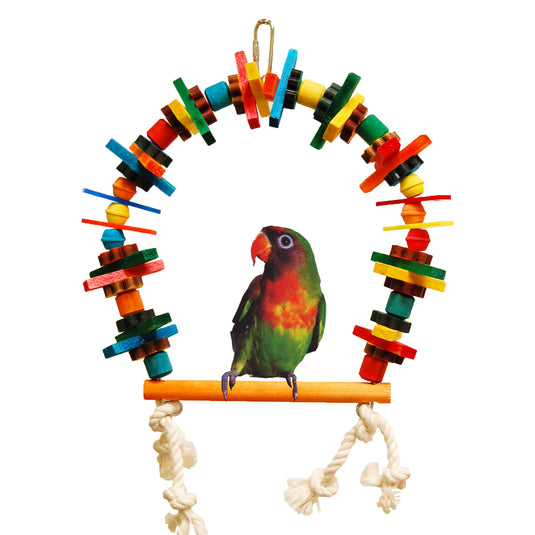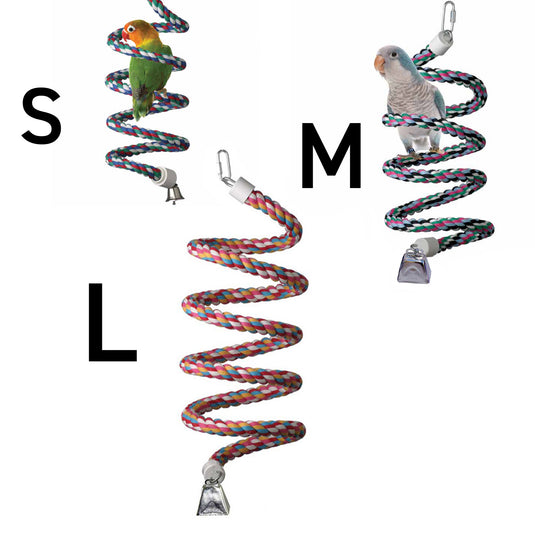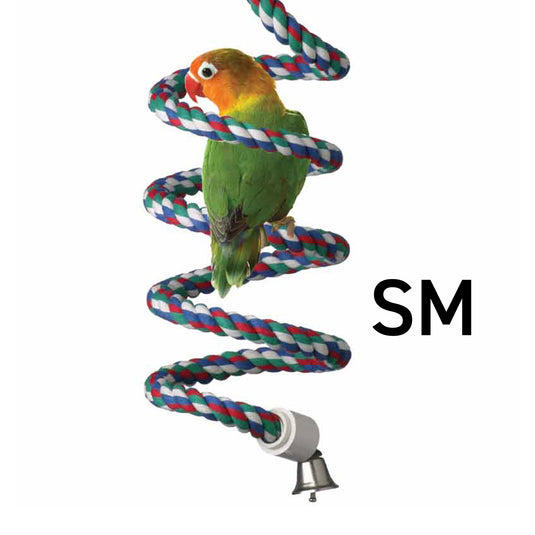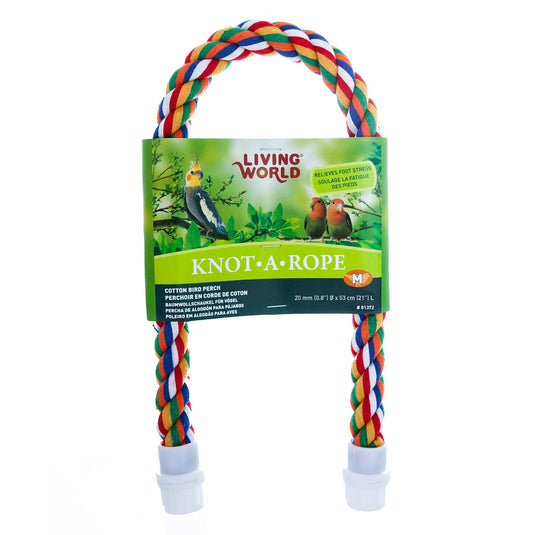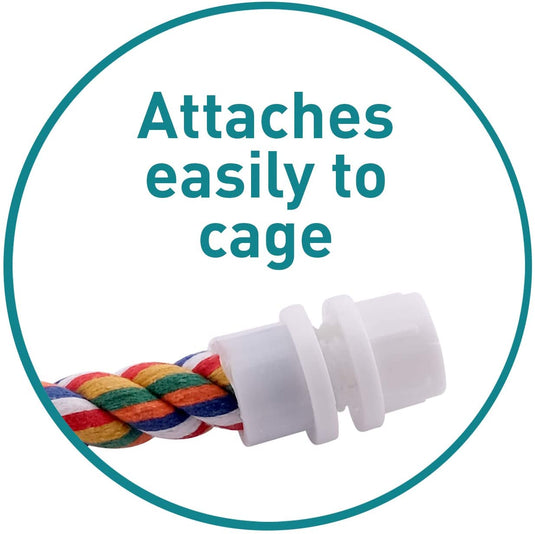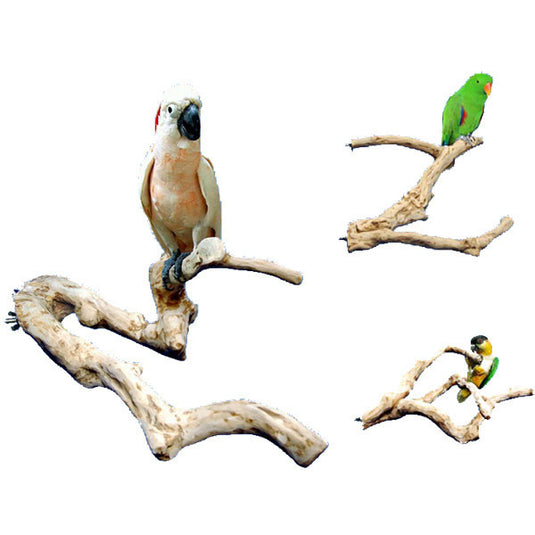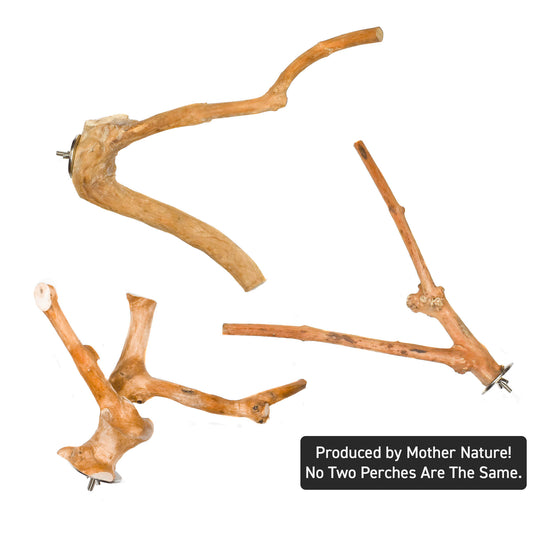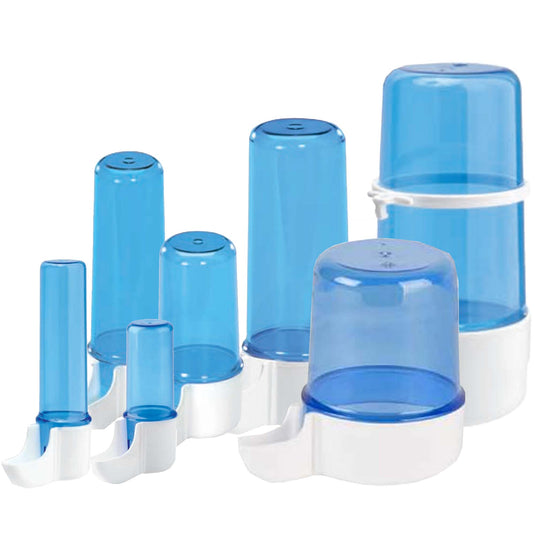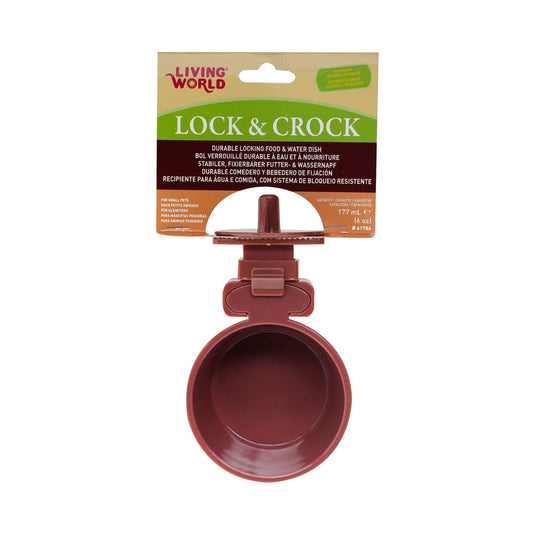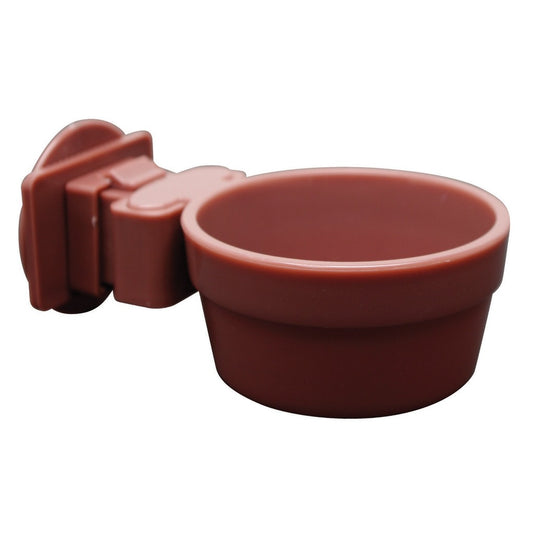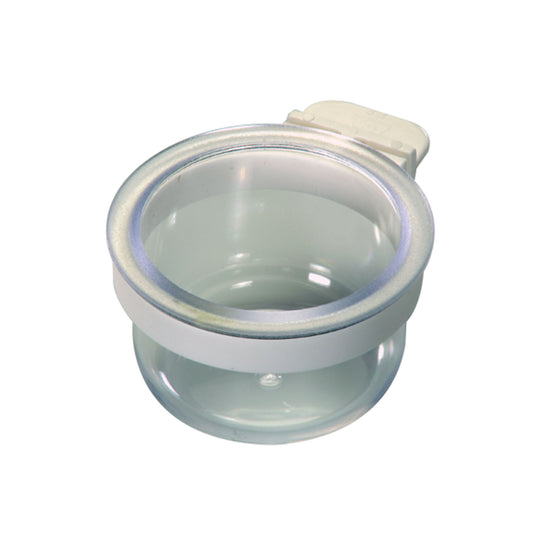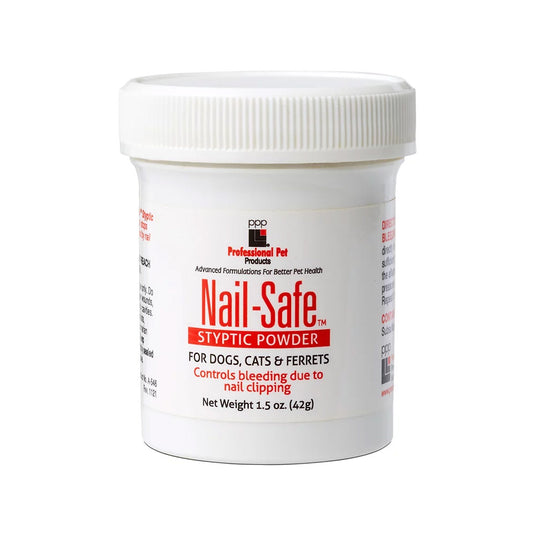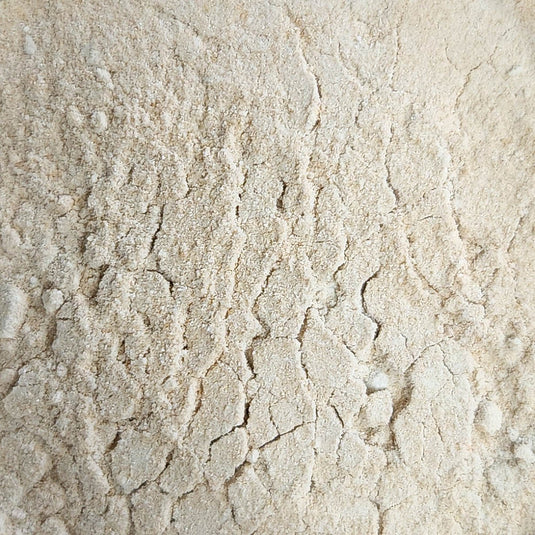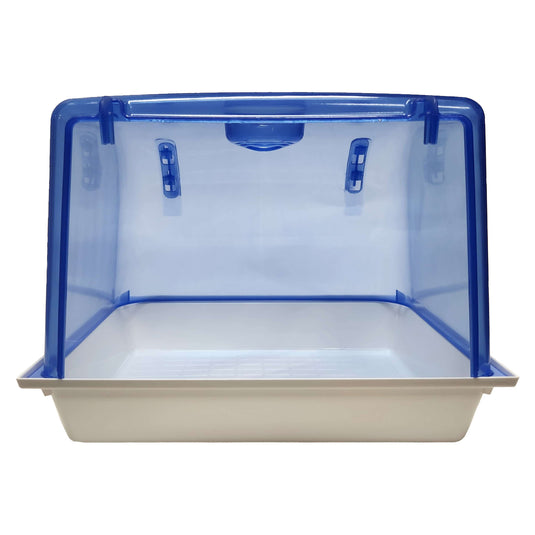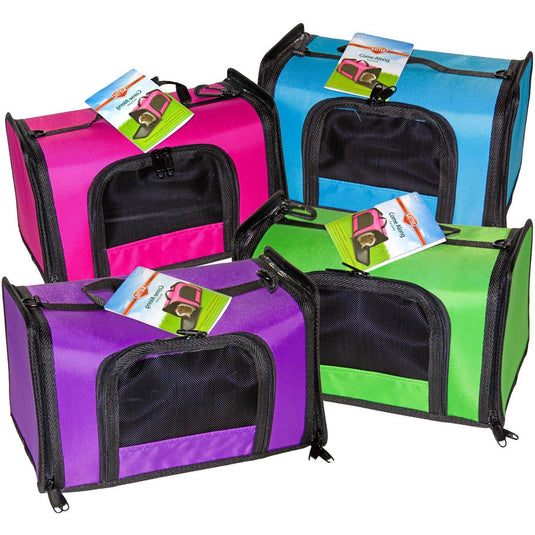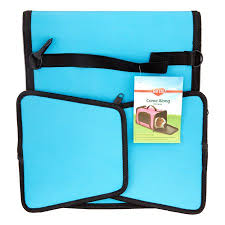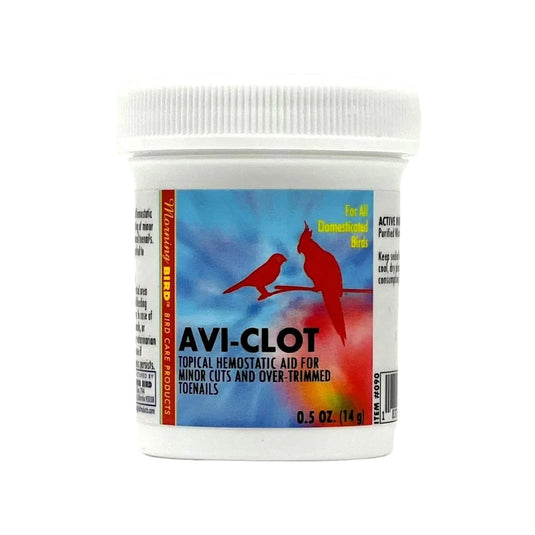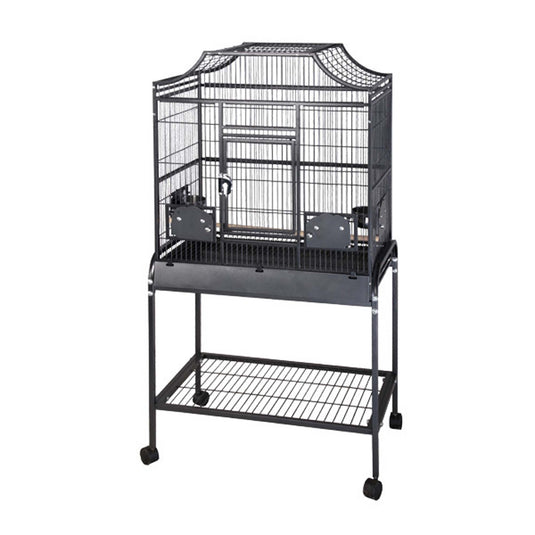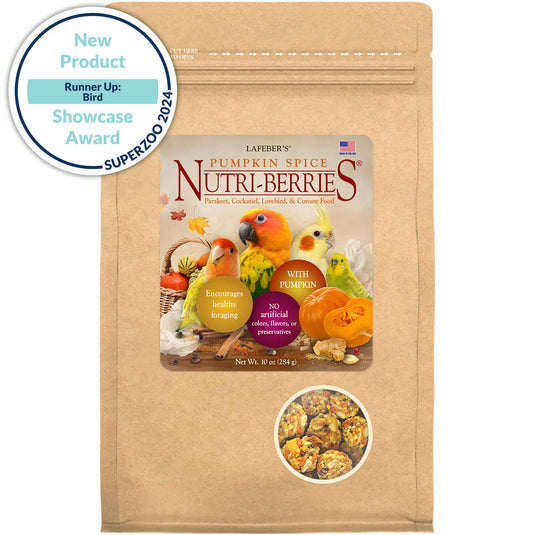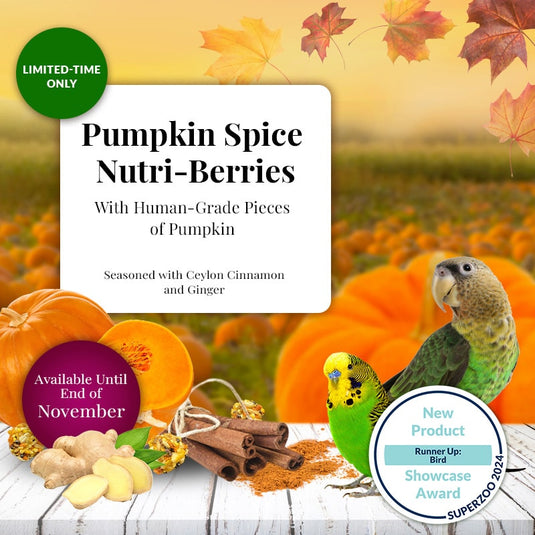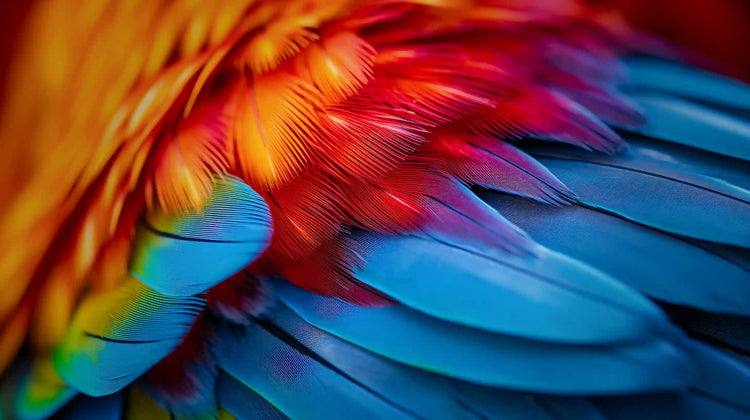| Common Name | Cockatiel |
| Binomial Name | Nymphicus hollandicus |
| Average Lifespan | 17 - 20 years or more |
| Average Length | 30+ cm (12+ inches) |
| Average Weight | 90 - 120 grams |
| Song Type | Melodious |
Noise Level & Talking Ability
Relatively quiet in comparison with other similar sized birds. Cockatiels like to whistle tunes and often make "contact calls" when their owner leaves the room. Cockatiels can learn to speak words but are much more often great whistlers.
Physical Features
Cockatiels are mostly grey in colour. They are best known for their long tails, crests, and orange cheeks. At maturity, male cockatiels develop yellow faces which often extend into their crests, and the cheeks may become a more intense orange. The striping on the rump and tail, as well as the dots in the wings, fade away and become grey like the body. The flight feathers and upper side of the tail has a dusty silver appearance. The back is dark grey, sharply contrasted by white secondary coverts on the wing. The beak is dark grey, as are the legs and feet.
Adult females and immature cockatiels look very similar to one another. They are overall grey, with the belly being lighter grey than that back. Many female cockatiels develop a small amount of yellow in the face, and often have a muddy yellow-grey crest. The cheek patches are orange varying in shades and intensities. The flight feathers have yellowish dots. The rump and tail have thin whitish bars. The two outermost feathers in the tail are yellow with grey bars. Like in males, the secondary coverts are white. The beak, legs, and feet are grey.
IMPORTANT NOTE FOR PEARL MUTATIONS: When the bird molts into their adult feathers, a male cockatiel that expresses the pearl mutation will change in appearance and look very similar to a normal cockatiel. Females will remain relatively the same in appearance as when they were young.
Pet Profile
Great family birds, handfed cockatiels who are regularly handled will feel comfortable stepping up to almost anyone who is comfortable around birds! They are silly little birds who are very sweet. This makes them an ideal companion for kids or beginner bird owners. They tend to be very gentle birds who seldom become aggressive when unhappy.
Cockatiels are a dustier bird and that must be taken into consideration before choosing this species as the pet for you. Households with people who have asthma or other respiratory conditions may find the cockatiel irritates their respiratory system. Frequent bathing and proper airflow in the home are important for those who wish to own cockatiels.
Diet
Pellets should be a cockatiels main diet. Fruit, veggies, and chop mixes should also be given. Seed and spray millet should be given as a treat. For picky cockatiels, adding Prime Vitamin Supplement to their seeds can help to make them more balanced, but a pelleted diet will always be better.
Housing
Cockatiels are active birds that need a cage that will allow them to climb, roam, and flap their wings with ease. A cement perch is always a good addition to the cage as it allows them to file their nails and beak down at their leisure. Both destructible and indestructible toys should be included in the cage to add variety.
Breeding Information
| Age of Maturity | 1 Year |
| Breeding Aviculture | Very Common |
| Average Clutch Size | 4 - 7 Eggs |
| Nest Box | 12" x 8" x 12" |
| Breeding Life | 15 Years |
Cockatiels are fairly easy birds to breed. They require little assistance other than the proper diet and appropriate nesting boxes. Breeding information for Cockatiels is easy to follow and will help ensure a successful breeding season. Breeding Cockatiels can cause you to run into some complications; therefore, it's important to learn as much as you can prior to breeding Cockatiels.
Hens are capable of breeding for up to fifteen years if they are cared for properly. During the first breeding season, it is not uncommon for Cockatiels to abandon their eggs and even eat or traumatize the offspring. In most cases, breeding Cockatiels is simple, but in certain pairs, infertility may be an issue. Cockatiels breed best from early Spring to late Autumn but if they are kept indoors and the environment is correct, they can breed at any time. Never allow Cockatiels to breed more than twice per year.
Breeding hens need the proper diet to include calcium and protein, as well as a mineral block. A hen should be offered grains and green vegetables. A proper diet is essential to prevent egg binding and for healthy offspring.
Wild Status

Stable - Least Concern
Assessed for The IUCN Red List of Threatened Species in 2018.
- Our website has an abundance of information about species, behaviour, talking ability, and ownership essentials you may need to begin. This is a great place to start narrowing down your search for the bird best suited for your family. Once you have researched various bird species and narrowed down your choices, please contact us via phone or email to create an appointment to meet the birds and ask any questions you may have in regards to care, nutrition, and the best fit for your home.
- We will set up a date and time for you to meet the bird(s). We will notify you of our current protocols and procedures. If you have decided on a specific bird, we recommend that you put a deposit on it. Birds will not be held without a minimum 50% deposit. If you put down a deposit before meeting the bird and after meeting the bird decide it is not a good fit, we can refund your the deposit in full. If you are placing a deposit prior to meeting a bird, your appointment to meet the bird must be within the following week.
- If you are meeting a bird(s) that is not weaned, you will not be able to take the bird home that same day. If you are meeting a bird that is weaned, and you are properly prepared to have the new bird in your home, we will go over a care sheet and answer any questions you have during your appointment. If that is too soon, and your home is not ready, you can book a pick-up appointment within the following week. Again, to reserve a bird you must put down at least a 50% deposit or payment in full.
- When your bird is weaned and ready to go home you will receive an email with the following information
• A link to our care sheet in printable PDF form.
• A link to book a timeslot for your care sheet / bird pick-up.
• A link to the food your bird is eating as well as toys, treats, and other essential items to start your new adventure!
- Read the care sheet, write down any questions you have, ensure you’ve got the correct food and a proper variety of toys and perches, as well as a suitable cage. Then book your pick-up appointment! Please show up within 5 minutes of the appointment start time. If you have a carrier for your new bird, feel free to bring it. We can provide a travel box if needed.
If you have additional questions about how to purchase one of our birds please take a look at our FAQ's for purchasing a new bird:
Before You Buy
We offer a seven-day health guarantee on our handfed birds. A mandatory educational care sheet will be gone over at time of purchase. You must provide your bird with suitable shelter, food, water, vitamins and minerals from time of purchase.
We suggest that within three days (72 hours) of purchase, you bring your bird to an avian vet for a complete examination. This is at the cost of the pet owner. Should any health problem occur or be discovered, inform us IMMEDIATELY, with a written report otherwise the health guarantee is void. Any veterinary fees at this point need to be cleared by Exotic Wings & Pet Things Inc.
The health guarantee does not apply if there is another bird in your home that was not purchased from Exotic Wings & Pet Things Inc. or if the bird leaves the store unclipped.
We cannot guarantee the gender or temperament of your bird. Our handfed birds are tame but may take some time to adjust to their new surroundings. The more time is spent socializing with your pet bird after they have settled into your household, the better your relationship with your pet will be. After the seven day period any warranty will be at the discretion of Exotic Wings & Pet Things Inc.

Shower your feathered friend (or furry companion!) with love and rewards at Exotic Wings! Our customer rewards program makes it easy to earn points and save on everything you need to keep your pet happy and healthy. Simply create a free account and you're automatically enrolled. Every dollar spent (excluding taxes and shipping) earns you a point, and those points add up quickly to valuable discounts! Redeem your points at checkout for savings on a variety of bird food, treats, toys, cages, and other pet essentials. We also offer bonus points for referring friends, so spread the love and watch your rewards grow even faster! Sign up today and start earning rewards on all your pet purchases at Exotic Wings!
Our program currently consists of both points & referrals!
Access your rewards by clicking the blue rewards widget on the bottom left of your screen.
Points:
- For every dollar you spend (excluding taxes and shipping) you are rewarded a point!
- Spend your points on discount codes which can be redeemed at checkout.
- 500 Points = $10.00 off an order over $50.00.
- 1000 Points = $25.00 off an order over $100.00.
Referrals:
- Sign into your account and share your referral link!
- Located in the rewards widget on the bottom right of your screen.
- They get a $5 off discount (For orders over $50.00)
- You get a bonus 25 Point for each successful referral.
Have questions about our rewards program? View rewards FAQ's.
| Common Name | Cockatiel |
| Binomial Name | Nymphicus hollandicus |
| Average Lifespan | 17 - 20 years or more |
| Average Length | 30+ cm (12+ inches) |
| Average Weight | 90 - 120 grams |
| Song Type | Melodious |
Noise Level & Talking Ability
Relatively quiet in comparison with other similar sized birds. Cockatiels like to whistle tunes and often make "contact calls" when their owner leaves the room. Cockatiels can learn to speak words but are much more often great whistlers.
Physical Features
Cockatiels are mostly grey in colour. They are best known for their long tails, crests, and orange cheeks. At maturity, male cockatiels develop yellow faces which often extend into their crests, and the cheeks may become a more intense orange. The striping on the rump and tail, as well as the dots in the wings, fade away and become grey like the body. The flight feathers and upper side of the tail has a dusty silver appearance. The back is dark grey, sharply contrasted by white secondary coverts on the wing. The beak is dark grey, as are the legs and feet.
Adult females and immature cockatiels look very similar to one another. They are overall grey, with the belly being lighter grey than that back. Many female cockatiels develop a small amount of yellow in the face, and often have a muddy yellow-grey crest. The cheek patches are orange varying in shades and intensities. The flight feathers have yellowish dots. The rump and tail have thin whitish bars. The two outermost feathers in the tail are yellow with grey bars. Like in males, the secondary coverts are white. The beak, legs, and feet are grey.
IMPORTANT NOTE FOR PEARL MUTATIONS: When the bird molts into their adult feathers, a male cockatiel that expresses the pearl mutation will change in appearance and look very similar to a normal cockatiel. Females will remain relatively the same in appearance as when they were young.
Pet Profile
Great family birds, handfed cockatiels who are regularly handled will feel comfortable stepping up to almost anyone who is comfortable around birds! They are silly little birds who are very sweet. This makes them an ideal companion for kids or beginner bird owners. They tend to be very gentle birds who seldom become aggressive when unhappy.
Cockatiels are a dustier bird and that must be taken into consideration before choosing this species as the pet for you. Households with people who have asthma or other respiratory conditions may find the cockatiel irritates their respiratory system. Frequent bathing and proper airflow in the home are important for those who wish to own cockatiels.
Diet
Pellets should be a cockatiels main diet. Fruit, veggies, and chop mixes should also be given. Seed and spray millet should be given as a treat. For picky cockatiels, adding Prime Vitamin Supplement to their seeds can help to make them more balanced, but a pelleted diet will always be better.
Housing
Cockatiels are active birds that need a cage that will allow them to climb, roam, and flap their wings with ease. A cement perch is always a good addition to the cage as it allows them to file their nails and beak down at their leisure. Both destructible and indestructible toys should be included in the cage to add variety.
Breeding Information
| Age of Maturity | 1 Year |
| Breeding Aviculture | Very Common |
| Average Clutch Size | 4 - 7 Eggs |
| Nest Box | 12" x 8" x 12" |
| Breeding Life | 15 Years |
Cockatiels are fairly easy birds to breed. They require little assistance other than the proper diet and appropriate nesting boxes. Breeding information for Cockatiels is easy to follow and will help ensure a successful breeding season. Breeding Cockatiels can cause you to run into some complications; therefore, it's important to learn as much as you can prior to breeding Cockatiels.
Hens are capable of breeding for up to fifteen years if they are cared for properly. During the first breeding season, it is not uncommon for Cockatiels to abandon their eggs and even eat or traumatize the offspring. In most cases, breeding Cockatiels is simple, but in certain pairs, infertility may be an issue. Cockatiels breed best from early Spring to late Autumn but if they are kept indoors and the environment is correct, they can breed at any time. Never allow Cockatiels to breed more than twice per year.
Breeding hens need the proper diet to include calcium and protein, as well as a mineral block. A hen should be offered grains and green vegetables. A proper diet is essential to prevent egg binding and for healthy offspring.
Wild Status

Stable - Least Concern
Assessed for The IUCN Red List of Threatened Species in 2018.
- Our website has an abundance of information about species, behaviour, talking ability, and ownership essentials you may need to begin. This is a great place to start narrowing down your search for the bird best suited for your family. Once you have researched various bird species and narrowed down your choices, please contact us via phone or email to create an appointment to meet the birds and ask any questions you may have in regards to care, nutrition, and the best fit for your home.
- We will set up a date and time for you to meet the bird(s). We will notify you of our current protocols and procedures. If you have decided on a specific bird, we recommend that you put a deposit on it. Birds will not be held without a minimum 50% deposit. If you put down a deposit before meeting the bird and after meeting the bird decide it is not a good fit, we can refund your the deposit in full. If you are placing a deposit prior to meeting a bird, your appointment to meet the bird must be within the following week.
- If you are meeting a bird(s) that is not weaned, you will not be able to take the bird home that same day. If you are meeting a bird that is weaned, and you are properly prepared to have the new bird in your home, we will go over a care sheet and answer any questions you have during your appointment. If that is too soon, and your home is not ready, you can book a pick-up appointment within the following week. Again, to reserve a bird you must put down at least a 50% deposit or payment in full.
- When your bird is weaned and ready to go home you will receive an email with the following information
• A link to our care sheet in printable PDF form.
• A link to book a timeslot for your care sheet / bird pick-up.
• A link to the food your bird is eating as well as toys, treats, and other essential items to start your new adventure!
- Read the care sheet, write down any questions you have, ensure you’ve got the correct food and a proper variety of toys and perches, as well as a suitable cage. Then book your pick-up appointment! Please show up within 5 minutes of the appointment start time. If you have a carrier for your new bird, feel free to bring it. We can provide a travel box if needed.
If you have additional questions about how to purchase one of our birds please take a look at our FAQ's for purchasing a new bird:
Before You Buy
We offer a seven-day health guarantee on our handfed birds. A mandatory educational care sheet will be gone over at time of purchase. You must provide your bird with suitable shelter, food, water, vitamins and minerals from time of purchase.
We suggest that within three days (72 hours) of purchase, you bring your bird to an avian vet for a complete examination. This is at the cost of the pet owner. Should any health problem occur or be discovered, inform us IMMEDIATELY, with a written report otherwise the health guarantee is void. Any veterinary fees at this point need to be cleared by Exotic Wings & Pet Things Inc.
The health guarantee does not apply if there is another bird in your home that was not purchased from Exotic Wings & Pet Things Inc. or if the bird leaves the store unclipped.
We cannot guarantee the gender or temperament of your bird. Our handfed birds are tame but may take some time to adjust to their new surroundings. The more time is spent socializing with your pet bird after they have settled into your household, the better your relationship with your pet will be. After the seven day period any warranty will be at the discretion of Exotic Wings & Pet Things Inc.

Shower your feathered friend (or furry companion!) with love and rewards at Exotic Wings! Our customer rewards program makes it easy to earn points and save on everything you need to keep your pet happy and healthy. Simply create a free account and you're automatically enrolled. Every dollar spent (excluding taxes and shipping) earns you a point, and those points add up quickly to valuable discounts! Redeem your points at checkout for savings on a variety of bird food, treats, toys, cages, and other pet essentials. We also offer bonus points for referring friends, so spread the love and watch your rewards grow even faster! Sign up today and start earning rewards on all your pet purchases at Exotic Wings!
Our program currently consists of both points & referrals!
Access your rewards by clicking the blue rewards widget on the bottom left of your screen.
Points:
- For every dollar you spend (excluding taxes and shipping) you are rewarded a point!
- Spend your points on discount codes which can be redeemed at checkout.
- 500 Points = $10.00 off an order over $50.00.
- 1000 Points = $25.00 off an order over $100.00.
Referrals:
- Sign into your account and share your referral link!
- Located in the rewards widget on the bottom right of your screen.
- They get a $5 off discount (For orders over $50.00)
- You get a bonus 25 Point for each successful referral.
Have questions about our rewards program? View rewards FAQ's.
